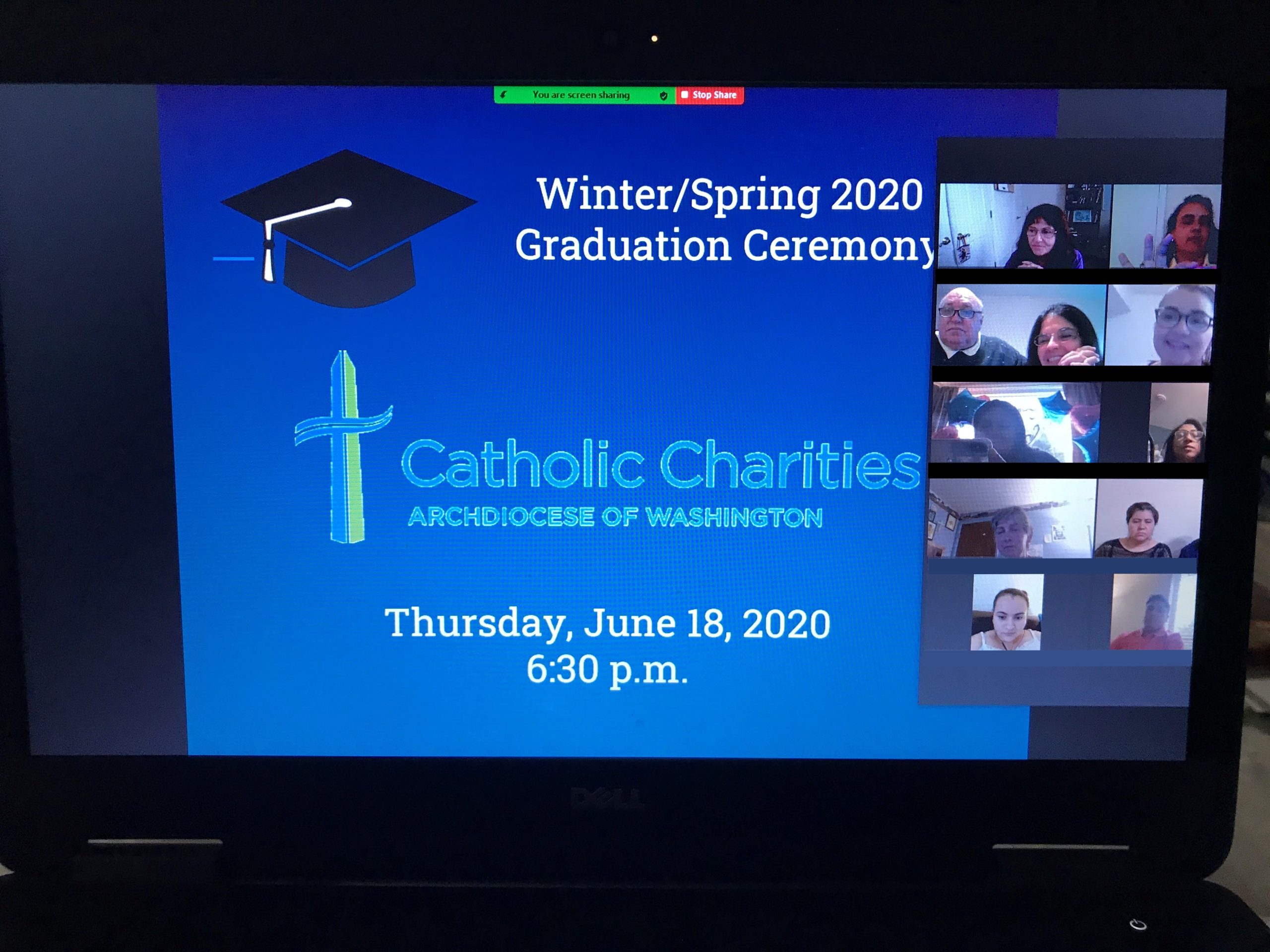
From hosting large-scale food distributions to providing rental assistance, Catholic Charities has quickly mobilized to meet the basic needs of the growing number of families who have been impacted by the current crisis. But because our model of care focuses on providing comprehensive, integrated services, we understand that it isn’t just one singular factor that perpetuates cycles of poverty; it’s an ecosystem of interconnected issues. Catholic Charities endeavors to provide a wide range of tools that address these issues. Our English as a Second Language (ESOL) program is an example of how we empower clients to overcome barriers so they can build a better future for themselves and their families.
Our ESOL courses, normally taught in-person in spring, summer and fall sessions at the Spanish Catholic Center in Gaithersburg, provide educational resources that allow non-native English speakers to learn vital life and work skills. Like almost all other educational services across the country, these classes had to make the quick and challenging transition to online learning because of the pandemic. Special funding allowed the center to loan laptops to most course participants, giving them their first access to this new form of learning.
“Virtual learning has its own learning curve,” said Laura Irwin, ESOL program supervisor. “From having to learn the platform, to finding a space conducive for learning and teaching, both instructors and learners have had to adapt to this new model.”
More than 130 learners, many of whom lost their jobs at the start of quarantine, are enrolled in a five-week express class to improve their language skills. Students hope the skills they learn will lead to more prosperous job opportunities by removing one of the major barriers hindering their economic prospects.
“We receive a lot of support from Catholic Charities,” one recent student said. “Of course, we’re supported by our teachers and our classmates, but we also get other assistance. With English classes, we learn a lot and we receive other services too”
While most of the students emigrated from Spanish-speaking nations, others represent countries as diverse as Sudan, Sri Lanka, Brazil, Togo, and the Ivory Coast. Using the comprehensive Step Forward curriculum from the Oxford University Press, students learn the grammar and vocabulary they will regularly use in daily conversations at home and in the workplace.
Students practice what they learn through simulated conversations, preparing them for a variety of important real-life situations.
“The greatest success,” Irwin said, “is that with the new learning model, they have learned how to participate in virtual job interviews.”
This current class follows the 13 spring course participants who transitioned to virtual learning at the start of the pandemic and graduated from the program in June.
And while participants are facing overwhelming challenges caused by the pandemic, they are dedicated to improving their lives and the lives of their families through education and self-empowerment. Many have expressed interest in pursuing other learning opportunities, including our Green Construction Pre-Apprenticeship program. Most students also receive case management services and participate in our employment assistance program, recognizing the necessity of outside support on the path to self-sufficiency.
As this unprecedented crisis continues, a sense of hope has become as essential as food for families in need. And hope is exactly what these students find in their virtual classrooms.